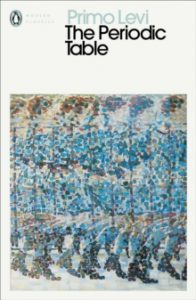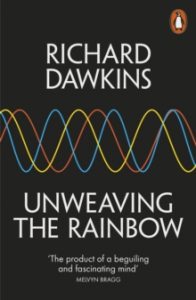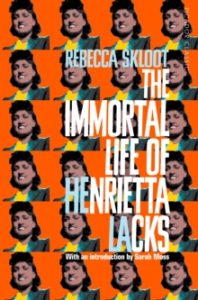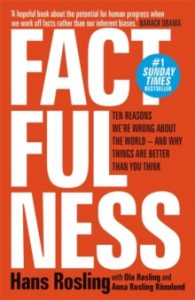Despite being a lifelong bibliophile and lover of words, my journey towards scientific literacy began relatively late in life. When, in my late twenties, I finally sought to cross over into the realm of the scientifically initiated, I turned to books to help me navigate the transition. The selection below, most of which were recommended by colleagues or teachers, are some of the titles that have helped bring science to life in my life.
 The Periodic Table by Primo Levi. A book voted “the best science book ever written” by London’s Royal Institution,[1] this is, on the face of it, less a book about chemistry than a collection of autobiographical pieces detailing the author’s life and experiences as a survivor of Mussolini’s Italy and Auschwitz. But Levi was also a chemist, and he works the elements of the periodic table into his stories with incredible artistry. The final chapter, Carbon, is breathtaking, down to the very last word – it still makes my head spin to think of it.
The Periodic Table by Primo Levi. A book voted “the best science book ever written” by London’s Royal Institution,[1] this is, on the face of it, less a book about chemistry than a collection of autobiographical pieces detailing the author’s life and experiences as a survivor of Mussolini’s Italy and Auschwitz. But Levi was also a chemist, and he works the elements of the periodic table into his stories with incredible artistry. The final chapter, Carbon, is breathtaking, down to the very last word – it still makes my head spin to think of it.
Unweaving the Rainbow: Science, Delusion and the Appetite for Wonder by Richard Dawkins. A favourite because of its opening line – a statement with the power to turn a lifetime of existential dread on its head – and because of Dawkins’ characteristically lucid and beautiful prose. The title refers to the complaint of the poet John Keats that Isaac Newton had destroyed the poetry of the rainbow by reducing it to prismatic colours, a charge comprehensively rebutted in this wide-ranging exploration of the ways in which science enhances our appreciation of the world’s wonders rather than detracts from it.
Information is Beautiful by David McCandless. Back in 2009, when this book was first published, it was less common than it is now to see facts presented in infographic form and so this collection of clever and colourful examples made a lasting impression on me. By showing rather than telling, McCandless inspires us to think about what data actually mean and how to use space, size, shape and colour to convey that meaning in the most “beautiful and approachable” way possible.
The Immortal Life of Henrietta Lacks by Rebecca Skloot. A rich, multi-layered book describing the life of Henrietta Lacks, the Black woman from whose cervical cancer tissue the immortal cell line known as HeLa was derived. In telling her story, Skloot interweaves the difficulties she experienced as a journalist trying to uncover the details of Henrietta’s life with the racism of the healthcare system that took Henrietta’s cells without her consent and the devastating consequences of that action for the Lacks family. She also opens up a wider discussion about the ethical issues surrounding donated human tissue when research turns to commercialisation, and sets it in the context of the important discoveries that HeLa cells have enabled, which extend to research into COVID vaccines today.[2] It’s not an easy read, but it’s an important one – not least because it reminds us that scientific discovery does not happen in isolation and there are real stories of real people behind even the most aseptic-seeming test tube.
Factfulness by Hans Rosling. I first encountered Swedish physician and academic Hans Rosling through one of his TED talks, lured there no doubt by his famed dynamic presentation style, and I was immediately struck by his proposition that the state of the world is not as bad as we think it is. In this book, he builds out this argument, describing 10 ‘instincts’ – ways of thinking that lead us astray when it comes to understanding our reality – and giving us the cognitive tools to combat these unhelpful thought patterns. The ability to counter our innate tendency to look for negative outcomes is sometimes mentioned as a key element of resilience, and in this sense Factfulness functions as a kind of statistical self-help book – a much-needed thing in these worrying times.
[1] Randerson J. Levi’s memoir beats Darwin to win science book title. Guardian. 2006. Available at https://www.theguardian.com/science/2006/oct/21/uk.books. Accessed June 2021.
[2] Nature. Henrietta Lacks: science must right a historical wrong. 2020. Available at https://www.nature.com/articles/d41586-020-02494-z. Accessed June 2021.




